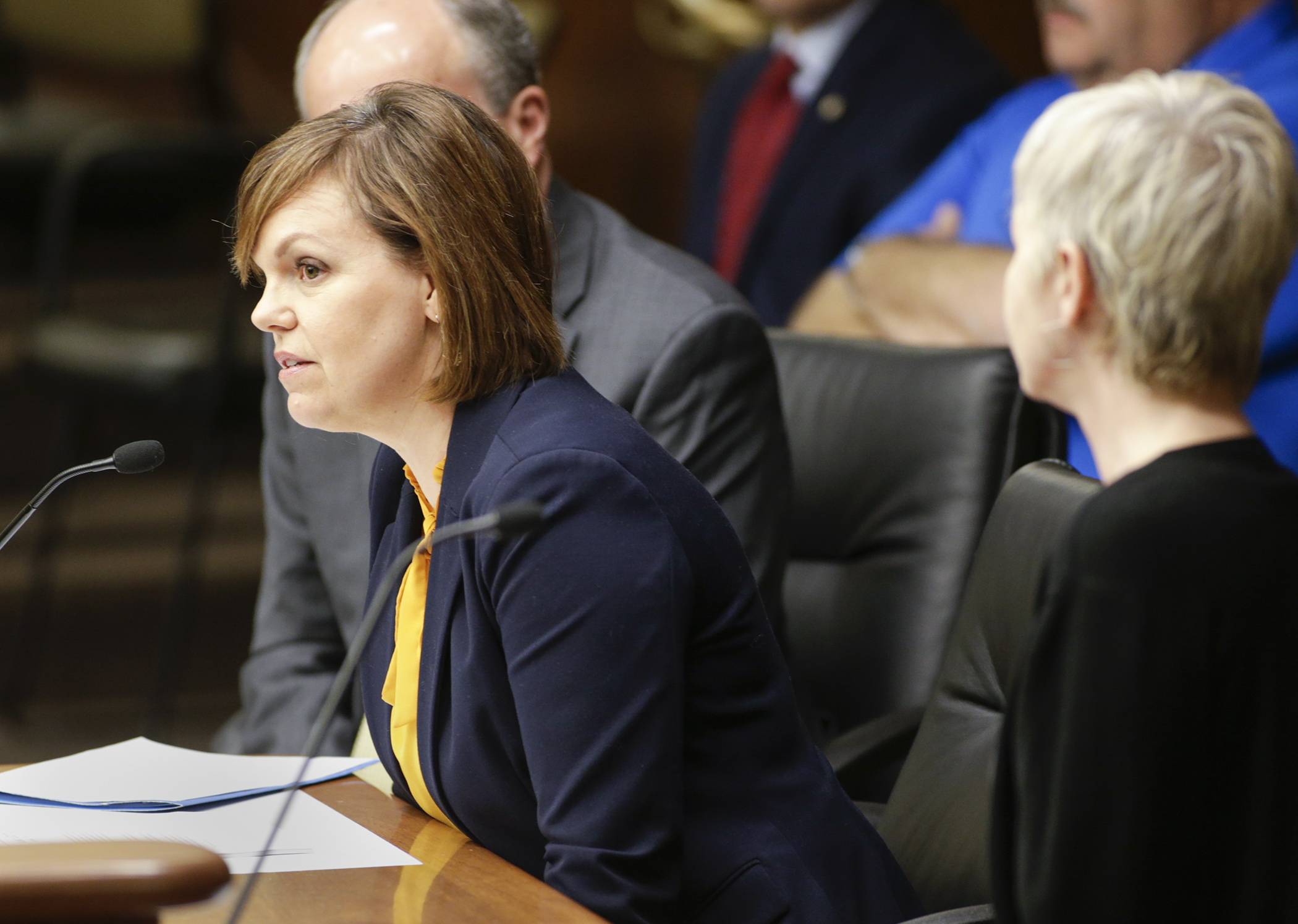Making movies in Minnesota may get a boost from tax credit

The Snowbate has melted, but the Minnesota film industry hasn’t yet.
At least that’s the hope behind two identical bills – HF961, sponsored by Rep. Greg Davids (R-Preston), and HF2658, sponsored by Rep. Dave Lislegard (DFL-Aurora) – laid over by the House Taxes Committee Thursday for possible omnibus bill inclusion.
The bills would create a 25 percent refundable tax credit for production costs of films made in Minnesota.
The Snowbate program offered those making films in Minnesota a rebate of 20 to 25 percent of their production costs. Between Fiscal Years 2014 and 2017, annual appropriations for the rebate ranged from $3.5 million to $6 million, but were only $500,000 per year in Fiscal Year 2018 and Fiscal Year 2019.
And that’s made a difference, according to Melodie Bahan, executive director of Minnesota Film & TV, an organization that promotes the state’s production industry. She said a $40 million Disney film – an adaptation of the “Timmy Failure” children’s book series – that the director wanted to film in Minnesota was shot in Portland instead because of the availability of incentives. An ABC-TV series, “In an Instant,” cited cuts to the state’s incentive program as among the reasons the Minnesota-filmed series wasn’t renewed for a fourth season.
But of more immediate concern is “Clouds.” Based upon the story of teenage Lakeland singer-songwriter Zach Sobiech, his battle with cancer and his song that became a viral internet sensation in the last year of his life, it’s slated to be made into a Warner Bros. film.
“We’ve always considered Minnesota to be a huge part of our story and another character in this film,” Laura Sobiech, Zach’s mother, told the committee. “Six years after Zach passed away, there’s still a ‘Clouds’ choir at the Mall of America in December every year; 5,000-plus people sing that song in memory of Zach and other kids who’ve suffered from cancer. He got to play on the stages of the Varsity Theater and First Avenue, and I think it would be a shame if this were filmed anywhere else.”
Minnesota Film & TV officials said the film will shoot in Canada if an incentive is unavailable in Minnesota. The organization claims that from 2013 to 2018, 260 Snowbate projects resulted in $81.9 million in spending and $60 million in wages for 9,237 Minnesota residents.
Brian Simpson, a business agent for the International Alliance of Theatrical Stage Employees, said Minnesota is exporting many recent graduates from Minneapolis Community and Technical College’s film program to Georgia because of more attractive tax incentives there for production companies.
Lislegard, the sponsor of HF2658, said the issue is close to his heart because, after losing his job, he was hired as an actor in “North Country,” an Oscar-nominated 2005 film shot on Minnesota’s Iron Range.
The Department of Revenue estimates that the bill would cost the General Fund between $14 million and $15 million annually.
529 subtractions would be repealed under bill
Over an hour of the meeting was devoted to discussion of HF2642, a bill sponsored by Rep. Aisha Gomez (DFL-Mpls) that would repeal the individual income tax subtraction for Section 529 college savings plans, but retain the tax credit. Holders of 529 accounts must choose either the subtraction or the credit when filing their taxes.
Gomez’s bill initially earmarked the revenue gained from the repealed subtraction – between $4.3 million and $4.7 million annually, according to a Department of Revenue estimate – to the Office of Higher Education grant program. To avoid a likely referral to the House Higher Education Finance and Policy Division, Gomez accepted an oral amendment to remove the section about earmarking the money for grants, which passed by a party line vote of 10-6.
The bill, as amended, was laid over for possible omnibus bill inclusion, but not before a lively conversation about how tax policy interacts with the cost of higher education. For tax year 2017, about 90 percent of those who used the 529 subtraction had incomes over $150,000 per year, according to the Department of Revenue. The 529 tax credit was most often used by those with incomes under $125,000.
Related Articles
Search Session Daily
Advanced Search OptionsPriority Dailies
Ways and Means Committee OKs proposed $512 million supplemental budget on party-line vote
By Mike Cook Meeting more needs or fiscal irresponsibility is one way to sum up the differences among the two parties on a supplemental spending package a year after a $72 billion state budg...
Meeting more needs or fiscal irresponsibility is one way to sum up the differences among the two parties on a supplemental spending package a year after a $72 billion state budg...
Minnesota’s projected budget surplus balloons to $3.7 billion, but fiscal pressure still looms
By Rob Hubbard Just as Minnesota has experienced a warmer winter than usual, so has the state’s budget outlook warmed over the past few months.
On Thursday, Minnesota Management and Budget...
Just as Minnesota has experienced a warmer winter than usual, so has the state’s budget outlook warmed over the past few months.
On Thursday, Minnesota Management and Budget...
